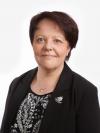References
1. Gurtov, V. A. Ot tradicionnoj modeli proforientacii k sisteme soprovozhdenija i konsul'tirovanija na protjazhenii vsej zhizni: opyt Finljandii / V. A. Gurtov, V. N. Kolesnikov, M. A. Pituhina // Nepreryvnoe obrazovanie: XXI vek. – 2019. – Vyp. 2 (26). DOI: 10.15393/j5.art.2019.4725. − (data obrashhenija 19.10.2019).
2. Vanhemping, E. Reforms and innovations in the field of social education in the post-Soviet and Scandinavian countries: a retrospective-comparative approach (on the example of Russia, Kazakhstan and Finland) / E. Vanhemping, M. Zechner, P. Rinne // Innovative processes in the field of science and social and humanitarian education. IV international scientific-practical conference. Orenburg, March 21, 2019. – Orenburg : Express Printing Press, 2019. – 436 p.
3. Vanhemping, E. Subject field of socio-political analytics of post-Soviet countries in the independent research sector of Finland / E. Vanhemping // Journal of Socio-Humanitarian Research «Al-Farabi» Institute of Philosophy, Political Science and Religious Committee of Science of the Ministry of Education of Kazakhstan. – 2016. – № 1 (53). – P. 136–140.













